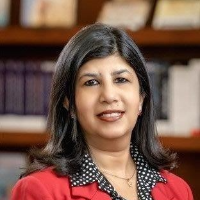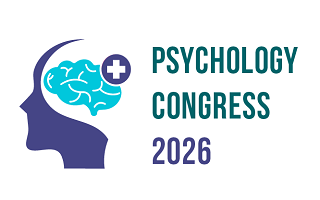3rd International Congress on
Psychology & Behavioral Sciences
March 26-27, 2026 | Osaka, Japan

Address: 1 Chome-9-15 Shinkitano, Yodogawa Ward, Osaka, 532-0025, Japan.
Psychology Congress 2026

Mohamed bin Zayed University of Artificial Intelligence, UAE
Abstract:
Background: University students are especially vulnerable to stress, anxiety, and burnout, yet culturally attuned approaches to wellbeing remain limited in the Middle East and North Africa (MENA) region. This presentation synthesizes evidence from studies and initiatives conducted in Abu Dhabi, Dubai & Ajman, highlighting proactive strategies to promote student wellbeing.
Methods: Multiple mixed-methods and qualitative studies were conducted between 2020–2024. These included: (1) a survey and interviews on internet use during the pandemic; (2) a convergent mixed-methods evaluation of a resilience-skills curriculum; (3) a phenomenological study analyzing reflective essays on resilience; (4) a pilot integration of a Progressive Muscle Relaxation (PMR) program into a time-restricted case-based medical curriculum (CBMC), guided by Gagne’s nine events of instruction and Bourdieu’s Theory of Practice; and (5) a systematic literature review that generated the 4M-Model (Mindfulness, Movement, Meaning, Moderator) for student mental health interventions.
Results: Students reported significant stressors and risk of anxiety and burnout. They engaged positively with resilience-building opportunities, particularly when experiential and culturally relevant. The resilience course enhanced awareness and application of coping strategies, while the PMR module was well-received, producing themes of self-control, awareness, liberation, self-realization, and interpersonal growth. Internet- use findings emphasized the role of self-regulation, while the 4M-Model offered a holistic framework for student wellbeing interventions.
Conclusion: Evidence from MBRU demonstrates that wellbeing and resilience are moving from the margins to the core of medical education in the UAE. Student-centered insights, innovative curricula such as PMR, and integrative models like the 4M-Model provide a blueprint for embedding wellbeing in university settings across the UAE.
Biography:
Dr. Bhavana Nair is a licensed psychologist with over 25 years of experience in counseling. Throughout her career, she has gained extensive expertise in addressing various challenges, working with diverse age groups and nationalities. Her passion for the field has driven her to conduct research and publish in top-tier journals. A significant portion of Dr. Nair's career has been spent in higher education, where she has effectively incorporated emotional well-being into academic curricula by highlighting the essential link between mental health and academic success. Dr. Nair holds additional qualifications and expertise in the area of inclusion, equipping her to work effectively with neurodiverse students to ensure they have access to equal opportunities for success within academic settings. Currently, she manages the Health & Wellbeing department of Mohamed bin Zayed University of Artificial Intelligence, which is based in the United Arab Emirates.
